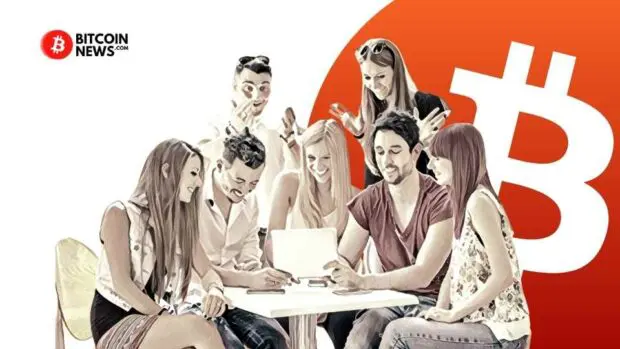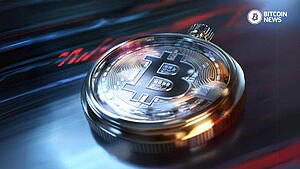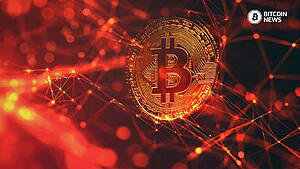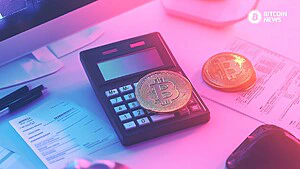This article was originally posted on The Mindful Inquisitor.
Bitcoin is a technological advancement that the world desperately needs. In this article I will aim to articulate that bitcoin solves the “money problem” and help our world in many ways.
When Bitcoin was first released back in 2009, I was skeptical. Sure, I understood that it was invented to solve our world’s money problem; the same money problem that had led to the recent economic collapse of the Great Recession of 2008.
However, I was hesitant to imagine that everyone in the world would adopt a formless and digital currency to act as our new medium of exchange. Nonetheless, I supported the concept, because I desperately wanted a new system of money for our world. A few years later, while in college, I did more research into bitcoin and economics. I soon realized that not only could bitcoin elegantly solve the world’s money problem, but it could solve so many others. Here, I will articulate what I mean by the money problem, and why bitcoin is here to dramatically help our world in many ways.
So first of all, what do I mean by the “money problem”. Fiat currencies, such as the U.S. dollar and Euro have major economic flaws. It used to be that the dollar was backed by gold, but given the rise of fractional reserve banking, the occurrence of the World Wars, and the initiation of the Bretton Woods System, governments soon found it too inconvenient to back the US Dollar with gold.
So now, it is backed by nothing but legal tender laws and we go about our daily lives, while the government has the nearly unlimited ability to print and devalue the currency as they see fit. We have seen this to be especially true during both the Great Recession of 2008 and the global coronavirus pandemic of 2020. What is ironic of course, is that the mechanisms that we use to “save” ourselves from this recession are the same mechanisms that helped cause them (this is the case for the Great Depression and Great Recession, not for the pandemic obviously).
Another issue of monetary expansion is the result of inflation. Again, we take this for granted. Every year the US CPI reports roughly 2% of inflation every year. Mainstream reports claim this is representative of a healthy economy. However, if real wages do not increase over time, then life just gets more expensive. Hence, we would get poorer as time goes on. So, do real wages go up? This depends on who you are (See Figure 1).
As made clear by the graph, as real wages increase the richer you become. If you are of the poorest 10%, over the past 37 years, your real wage has increased 4.5%. Of course, this is assuming the CPI is accurate in calculating true inflation. A healthy skeptic would argue that it is probably an understatement, leading to the possibility that the poorest of the nation have truly gotten poorer in recent history.
This makes sense when we think about the differences of how the rich and the poor make money. The rich make their money primarily through stocks and real estate. These are both asset classes that increase in value as economies are stimulated. One may also notice that these are the two assets that “popped” during the more recent economic collapses (2000 was the stock bubble and 2008 was the housing bubble). These two assets grow an enormous amount in our artificially stimulated bubbles, and the rich benefit from their growth.
On the other hand, people who make money through normal wages and salaries don’t receive enough wage increases to meet the rise in prices within the economy (houses included). There is an economic law that states the first people to receive money after it being printed are the first to benefit, whereas those at the end of the line will suffer. The government and the rich are the first to receive newly printed money. This generates the classic feeling that the rich get rich and the poor get poorer. I argue that this occurs largely because of the system of fiat currencies, fractional reserve banking, and monetary expansion. Hence, we have a money problem!
“The government and the rich are the first to receive newly printed money. This generates the classic feeling that the rich get rich and the poor get poorer.“
This is exactly why bitcoin is so important, and why they have the capability of solving many societal issues. With bitcoin, the increase in supply is fixed. Every day, the amount of bitcoin will increase at a fixed rate that no one can change. This increase is small, and the rate it grows get smaller has time goes on.
This way, it won’t be the government and rich who receive the newly created money first and reap the rewards, while the poor suffer from high inflation.
Additionally, without massive monetary expansion our economies will likely experience deflation, which means, rather than life getting more expensive as time goes on, life will get cheaper. Deflation is often argued as bad for the economy, but this is evidently only bad for the rich.
If nothing else, I hope this article more adequately explains why bitcoin allows for money to not only be more stable, but it puts the power of money back into the common people’s hands. To be more correct, it puts the power in nobody’s hands, because it is a decentralized software that runs on its own.
Lastly, I think moving away from an inflationary world would provide many great benefits. I would argue that our inflationary world has not only given rise to a debt driven world, but a consumerist and materialistic one as well. The reasons why inflation creates a debt driven world is obvious: if my money devalues overtime, I might as well borrow and pay it back later because the money later, will be cheaper than the money now.
This same logic applies to spending or saving our money: why save my money if it devalues? I might as well spend it now! This is the same reason why governments print money during times of economic downturn. It is argued that if inflation can occur, then people will be incentivized to spend their money and “stimulate” the economy. Yet, this causes terribly unhealthy lifestyle habits. If someone is incentivized to spend all of their money, because it is worth more today than tomorrow, then they will likely buy something that isn’t truly necessary. In other words, we buy stuff we don’t really need. However, buying something signals to the market that there is demand for this good, and more resources are used to produce more of it.
Materialism drives markets to produce useless things, and useless things are bought more frequently, because of the inflationary world we live in. Hence, ending inflation could help curtail our materialistic society. Another reason why people should support a bitcoin economy: Bitcoin could potentially help us end the rat race.










